Leah Pistorius
May 22, 2024
How should design and engineering education shift to meet the demands of the greatest challenges of the 21st century? Addressing complex and dynamic problems like climate change may require new ways of thinking and working, and new educational models to equip future designers with the tools needed to meet the challenges.
Tyler Fox, an associate teaching professor in the Department of Human Centered Design & Engineering, is leading a multi-year initiative to explore opportunities and gaps in current design education and identify the design skills and perspectives needed to address global challenges.

Dr. Tyler Fox
Fox's exploration is in the emerging field of transition design, a framework that blends elements of design, systems thinking, and sustainability to address complex societal challenges and transitions towards more sustainable futures. "My focus is on transition design because it's a movement that advocates for shifting design practice from consumer-driven UX toward a new set of practices that can help designers respond to wicked problems," Fox said. "Transition design requires us to have really long-term thinking. It’s beyond looking at an individual service, it’s looking at where this service leads us in the future. And how do we design for the future? So for me as an educator, I want to know how we teach for the future."
Fox is supported by a multi-year gift from the team at Microsoft Customer Experience & Success (CE&S), a collaborative partnership that bridges this work between academia and industry. "I’m so grateful to the team at Microsoft for working with us because this exploration has implications for industry. If we're educating designers for the future, we need the industry to shift alongside us. Through this partnership, we're hoping to expand career options for HCDE graduates and influence substantial growth in the field," said Fox.
The CE&S division at Microsoft focuses on the customer experience and ensuring the customer’s success with Microsoft products and services. “As you can imagine, with all the products and services that Microsoft has, the entire support ecosystem is one of the most complex support ecosystems in the world,” said Todd Allmond, principal design director in Microsoft's Experience Research and Design Studio. “Like HCDE, we look at the big picture—our team brings a holistic point of view to understand experiences and reimagine what they could be.” By partnering with HCDE, the CE&S team is elevating the capabilities of their staff and supporting the next generation of designers entering the workforce.
Now rounding out its second year, the partnership between Microsoft and HCDE has supported Fox in piloting new learning opportunities for students as he explores the theories, practices, and pedagogies of the current design landscape. Since Spring 2022, Fox has led or co-led four Directed Research Groups, a thematic capstone course on Service Design, and a new master’s level course on Transition Design.

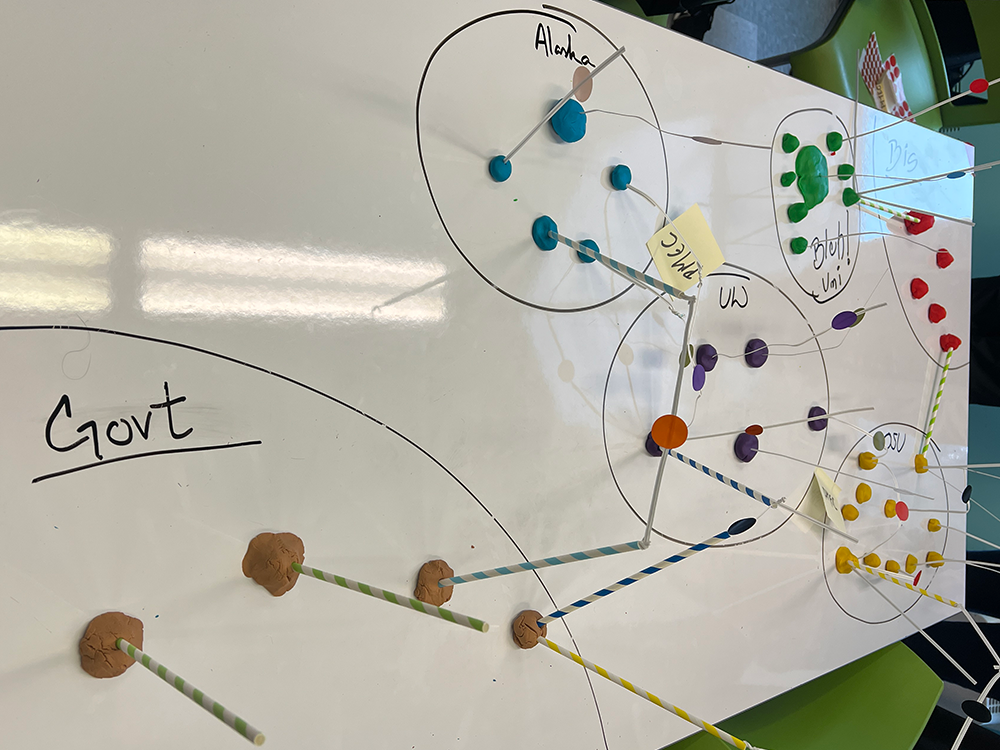
In a Directed Research Group led by Tyler Fox, teams of students are working with local organizations focused on circular economy, marine energy, and healthy forests. Students construct physical models of their research with the organizations and how they function.
With every new course, Fox is incorporating outcomes from the previous. Students in the initial Directed Research Group examined what tools service designers currently use in industry and used those findings to create design toolkits to support people doing service design. With mentors from the CE&S team, students in the thematic capstone course used service design to frame projects such as helping patients cultivate primary care relationships, supporting volunteer moderators in the collaborative Microsoft Support Community platform, and connecting out-of-school STEM education ecosystem with low-socioeconomic-status students.
Kari Rowles, senior customer experience strategist on the Microsoft CE&S team, served as a mentor for capstone students and said the experience brought their team new ideas and elevated their practice. “Working with the students is really rewarding,” said Rowles. “It has reminded our team how important the focus on methodology is, and we’ve been able to explore these methodologies behind service design and transition design, right along with the students.”
Throughout the 2023-2024 school year, Fox has been working with PhD candidate Michael Beach on a two-quarter Directed Research Group aimed at understanding the core competencies needed to do transition design. Teams of students are using UX design and transition design on projects with local organizations focused on circular economy, marine energy, and healthy forests. Students are rating their own design processes against the design competencies framework (published by the Design Competencies Futures Lab), pinpointing the design skills they are using, and identifying gaps in their skills as they move toward transition design.
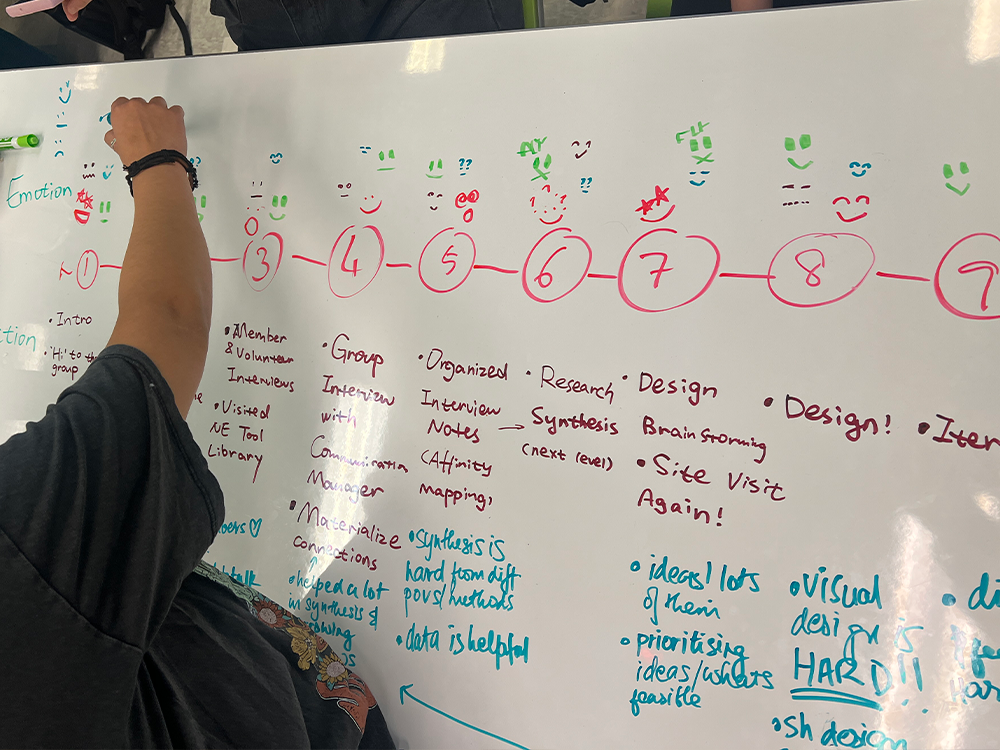
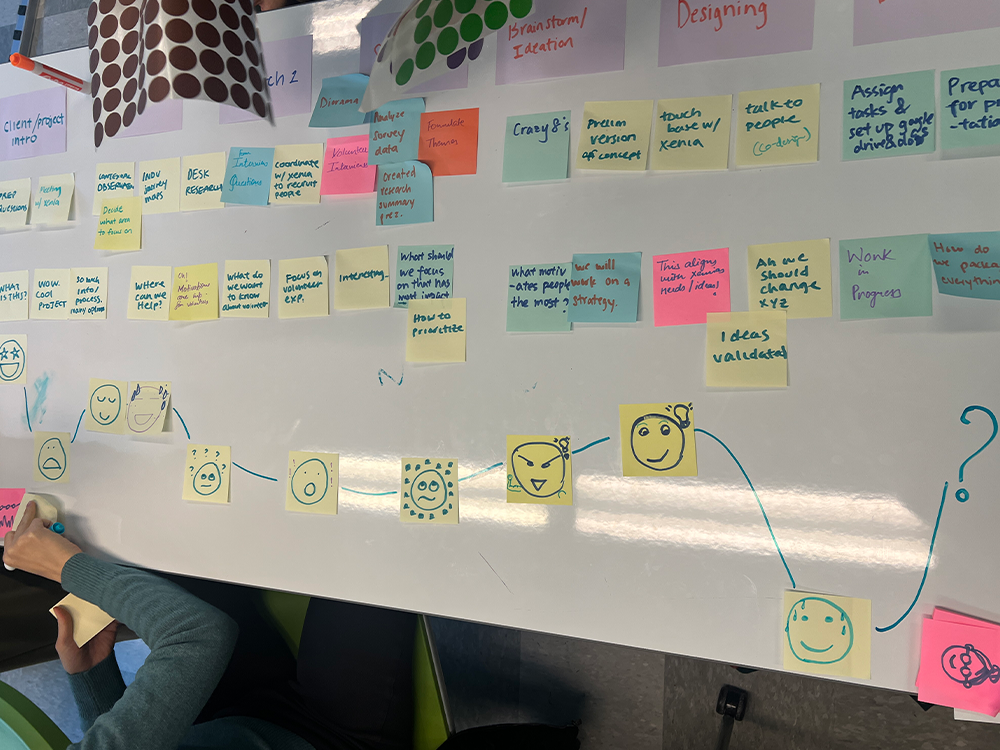
Students in the Directed Research Group map the exploration they have completed with their organizations over the quarter-long project. Students later annotated their map to highlight the design competencies they used at each stage.
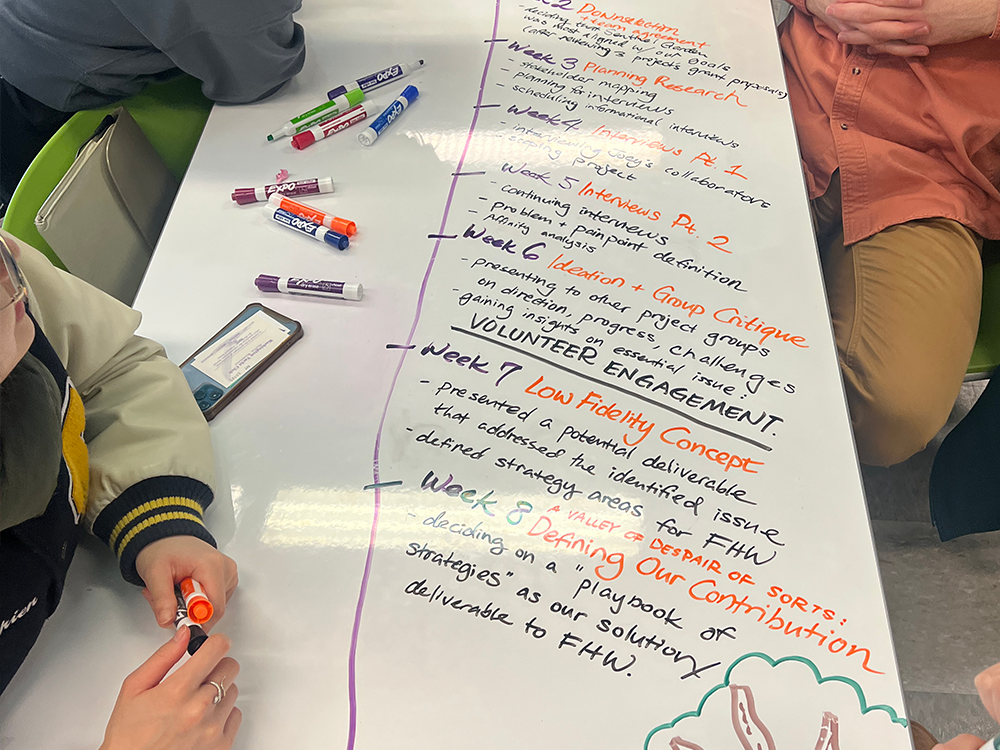
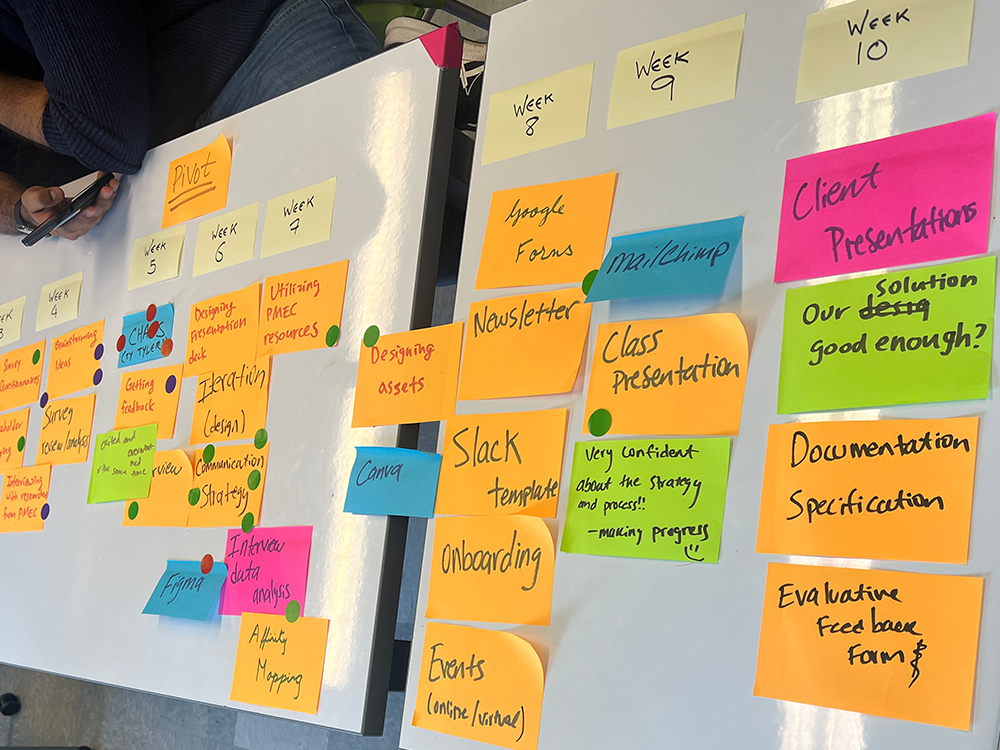
“Through this partnership and others, I hope that in industry, and at Microsoft in particular, we start seeing the next generation of researchers and designers pushing further and further up the chain and influencing how everything gets done," said Allmond. "One of the things that starts to happen when you are looking at service design, and then transition design, is it starts to tear down silos because people are working toward a very ideal common goal. Where your whole organization from the leadership to the individual teams all see the same vision, the connectedness, and the value that they’re driving towards.”
Understanding where design and engineering education needs to go is critical for addressing the complex societal challenges of the 21st century. With support from the Customer Experience & Success team at Microsoft, HCDE’s Tyler Fox is exploring frameworks like transition design, integrating interdisciplinary collaboration, and bridging the gap between industry and academia to prepare the next generation of designers to lead the way toward a more just, equitable, and sustainable future.